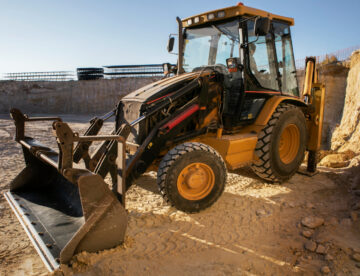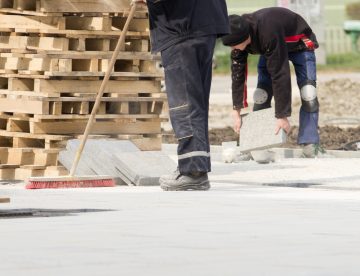
This year’s Mental Health Awareness Week began on Monday 13th and will run through to Sunday 19th May 2024. The theme, set by the Mental Health Foundation, is ‘Movement: moving for our mental health,’.
Acknowledging that being physically active is great for our bodies and minds, the campaign calls on everyone to find and do something that gets you moving. Read on to find out more about why movement is so important for mental health.

Earlier this year, we reported that Sheriff had won the January 2024 IKO Contractor Recognition Award for two of our roofing projects and was in the running for the year’s overall IKO award.
We’re happy to report that, out of all the companies IKO works with across the country, Sheriff picked up the second place ‘Highly Commended’ award at the ceremony last week. Take a look at this week’s blog for more.

Yesterday was Earth Day, an annual event when organisations and individuals around the world celebrate our remarkable planet and demonstrate support for environmental conservation and sustainability.
It’s got us thinking about some of the actions our industry can take – everything from reducing plastic waste and minimising the use of water on site to going paperless and lowering energy consumption at the office. Another idea is to purchase pre-used construction equipment but there are several considerations to take on board around this so let’s explore those in this week’s blog.

The latest study into the world’s costliest places for construction has placed London at the very top of the list.
Looking at 100 of the world’s largest cities across six continents, the latest Arcadis International Construction Costs (ICC) report ranked London first, ahead of Geneva, Oslo, New York City and then Copenhagen. Find out more in this week’s blog.

One of our team just came back from an overnight trip full of praise for the hotel they stayed in and its management.
Not only was this because the hotel was great but also because of an email the manager had sent within minutes of them checking in, which explained the high standards they wanted to achieve and what guests should do if anything falls short of that. Read our blog for more about how we think this type of excellent customer care could be applied to our work.

Housebuilders are applauding a report by the Competition and Markets Authority (CMA) that pins the blame for the UK’s housing shortage on the country’s planning system, not on construction companies.
A few weeks ago, the CMA released the final results of its year-long investigation into the housebuilding market. While the initial media focus was on potential collusion among eight major builders, the industry’s deeper interest lies in the report’s findings on planning. Read on to find out more.

Having just returned from a business trip in Thailand, our Managing Director, Ekrem Mahmutaj, is currently full of tales about the places he visited and the people he met.
A strong believer in the philosophy that travel opens up your mind, he’s also been using this trip to demonstrate how travel can actually offer huge benefits for business people. In a slight detour from our normal topics, why not read this week’s blog to see what you could be learning by taking a voyage.

While cleaning up might seem like a secondary concern on a bustling construction site, taking the time to remove scrap materials, dispose of debris properly and store tools securely is crucial. These practices aren’t just about keeping things tidy; they’re essential for preventing accidents, injuries and environmental hazards.
In many cases, incidents involving slips, trips and falls could have been prevented if the site had simply followed better housekeeping practices. Take note of some top tips in this week’s blog.


